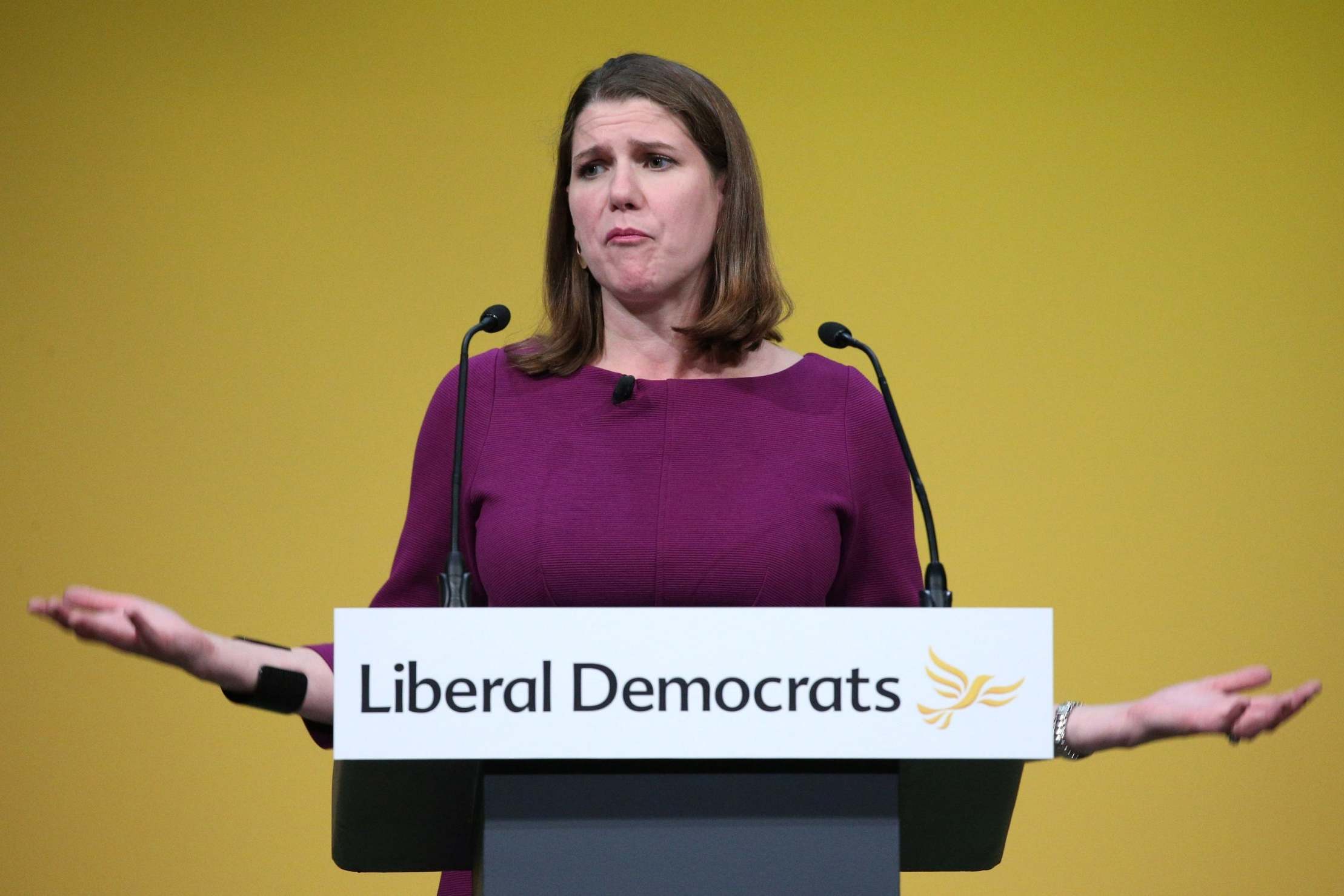Your support helps us to tell the story
From reproductive rights to climate change to Big Tech, The Independent is on the ground when the story is developing. Whether it's investigating the financials of Elon Musk's pro-Trump PAC or producing our latest documentary, 'The A Word', which shines a light on the American women fighting for reproductive rights, we know how important it is to parse out the facts from the messaging.
At such a critical moment in US history, we need reporters on the ground. Your donation allows us to keep sending journalists to speak to both sides of the story.
The Independent is trusted by Americans across the entire political spectrum. And unlike many other quality news outlets, we choose not to lock Americans out of our reporting and analysis with paywalls. We believe quality journalism should be available to everyone, paid for by those who can afford it.
Your support makes all the difference.Jo Swinson has said that "Liberal Democrat votes" will not put either Boris Johnson or Jeremy Corbyn into Downing street - effectively ruling out any deal after the election.
The Lib Dem leader told the Financial Times she would rather have another election immediately rather than put either of the pair into office.
The policy is strategic positioning ahead of the election: the party thinks it will be more able to win over Tory switchers in the seats it needs to win if it repudiates Jeremy Corbyn.
But does this approach actually stand up to scrutiny?
It's notable that the Lib Dems are ruling out working with leaders rather than parties: they might try and force a change in leadership in one party or the other – Labour MPs have already tried this once, so they might see it as another opportunity to get rid of a leader they don't like.
But the parliamentary Labour party of 2020 will be very different to the parliamentary Labour party of 2016 and new MPs are far more likely to support Jeremy Corbyn than the ones they replaced - especially if he was in a position to become prime minister. So this would not necessarily work.
In a hung parliament where the Lib Dems held the balance of power, it would be technically possible for them to come very close to forcing an election. They could vote against every confidence motion, blocking the installation of any government. (Assuming Labour the Tories vote against each other) The liberals couldn't actually call an election without the support of other parties, but they could wait the other parties out and block the formation of a government, causing a deadlock that could only be broken by an election.
But this probably isn't going to happen. One looming problem is that the UK is a countdown clock to a no-deal Brexit at the end of January, so playing waiting games isn't really an option for a party that says it wants to stop Brexit, especially if Boris Johnson is still caretaker prime minister, as Gordon Brown was during coalition negotiations in 2010.
The most likely scenario seems to be that the Lib Dems will simply break this pledge not to work with either parties. Firstly, the party has form in ditching pre-election pledges – cast your mind back to 2010 and their MPs' pledges to vote against increases in tuition fees. The leadership at the time also appeared to relish putting large chunks of their manifesto, foisted on them by members and events, into the bin.
Secondly, there's the thread of no-deal. But thirdly, if a Final Say referendum was on the table from the Labour side, there would be huge pressure on the liberals to make sure it happened – stopping Brexit is the Lib Dems' main policy and to reject it would be a betrayal that made tuition fees look like a minor kerfuffle.
British parties have a habit of saying they won't do deals with anyone ahead of elections. After the election things tend to look a bit different.

Join our commenting forum
Join thought-provoking conversations, follow other Independent readers and see their replies
Comments